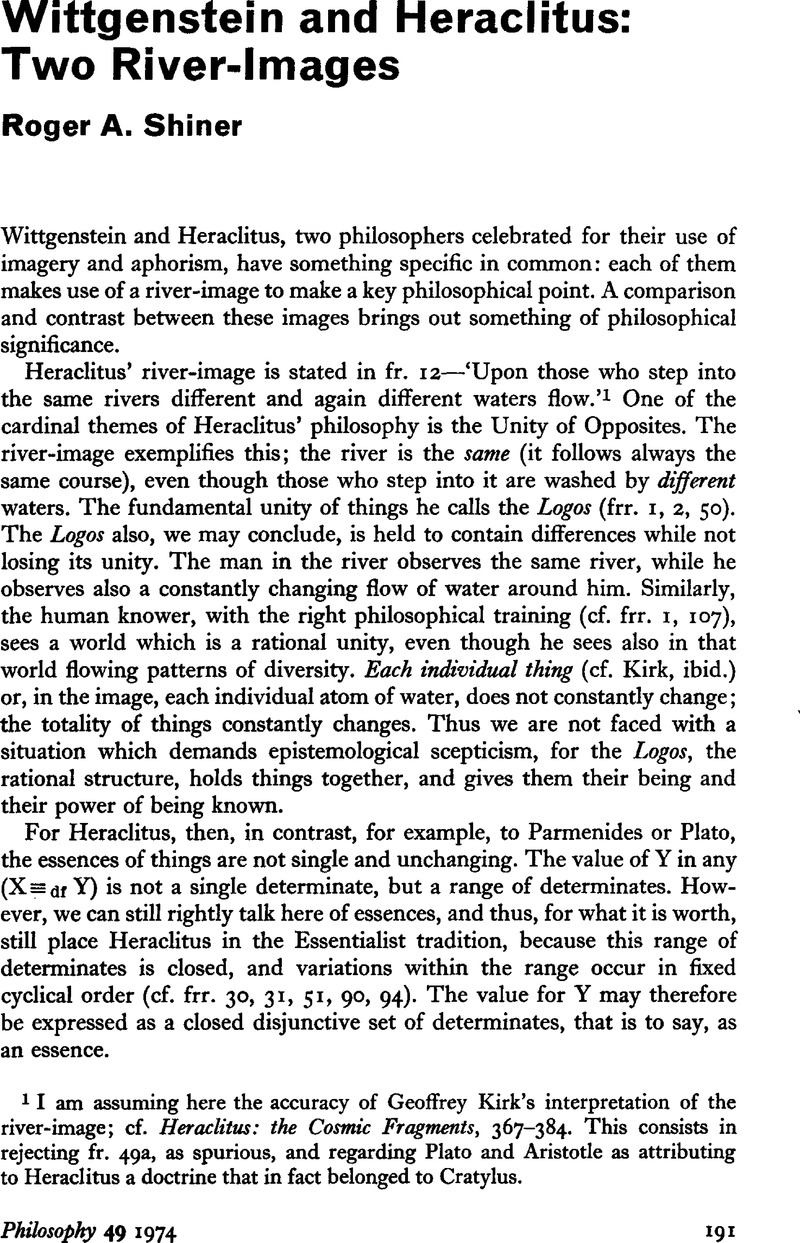Published online by Cambridge University Press: 25 February 2009

1 I am assuming here the accuracy of Geoffrey Kirk's interpretation of the river-image; cf. Heraclitus: the Cosmic Fragments, 367–384Google Scholar. This consists in rejecting fr. 4ga, as spurious, and regarding Plato and Aristotle as attributing to Heraclitus a doctrine that in fact belonged to Cratylus.
2 The verbal similarity to Heraclitus is striking. I have no information on, neither am I interested in, the historical question of whether this is conscious or unconscious.
3 For some further remarks on this notion, see Bogen, James's Wittgenstein's Philosophy of LanguageGoogle Scholar, Section III.2, and my critical notice of that book in Dialogue, 12, no. 4 (12, 1973), pp. 683–699.Google Scholar
4 It has been tried before; cf. Pears, D. F., ‘Universals’, Logic and Language, II, 57–58Google Scholar. Pears' point is connected with mine, but distinguishable.